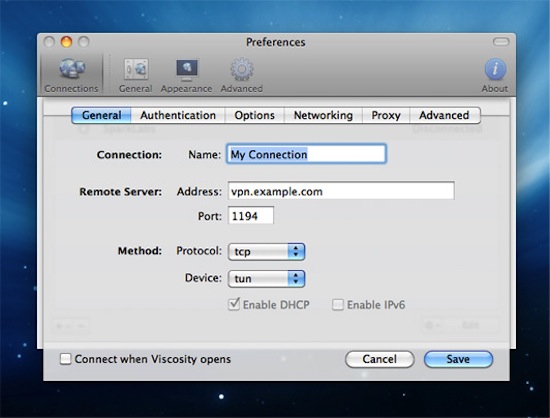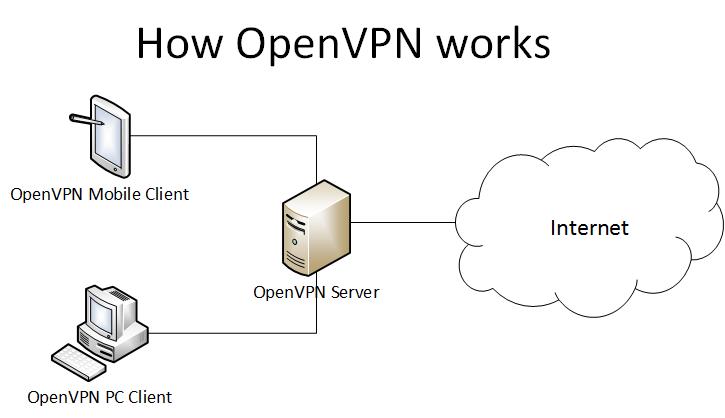

- Viscosity vpn vs openvpn for mac#
- Viscosity vpn vs openvpn install#
- Viscosity vpn vs openvpn windows#
Viscosity vpn vs openvpn install#
Installing Viscosity itself is pretty straightforward: just double-click the downloaded file and install it. The app itself may not be ideal for a beginner, but if your VPN of choice is capable enough, it will have detailed instructions and configuration files available to you. Viscosity is a third-party client that facilitates connections for VPN providers and therefore its speed and performance depend exclusively on the speed of VPN servers you’re connecting to. (Image credit: Future) Speed and experience

If you wish to stay in the know with all things SparkLabs, you may also sign up for a newsletter. There is also a huge knowledge base with setup guides, common errors, purchasing and registering instructions, and additional information.Īs a bonus, there’s a very informative blog with news and updates, as well as a forum, where you can communicate with both the Viscosity team and other users. First, there is a self help section with articles featuring the most common challenges, such as getting started with Viscosity, configuring DNS and WINS settings etc. However, before you reach out to the team, you may want to check out the website which is well stocked with information. If you find yourself in need of assistance, you can contact customer support via email or try the SparkLabs Twitter page.
Viscosity vpn vs openvpn for mac#
The Viscosity app can be downloaded for Mac and Windows, but there are currently no mobile apps available. SparkLabs adds that “server logs are typically only examined when diagnosing a server problem and to monitor for malicious access or use” and may be kept for up to 90 days. This may include data such as your IP address, date and time, the URL or path of the resource or file accessed, browser/software information contained in HTTP/HTTPS request headers (such as your browser/software name and version and operating system information), and request status.” However, when you interact with its servers “via a network request, some basic data about the request is logged. It exclusively facilitates connections via the OpenVPN connection protocol.Īccording to its Privacy Policy, SparkLabs and its products “do not collect or send out any private data.” For instance, the firm “will not send any interactions (such as keyboard and mouse input), network traffic, usernames, passwords, settings, encryption keys, microphone or camera recordings, VPN connection names, VPN connection configuration data, or VPN traffic.”
Viscosity vpn vs openvpn windows#
To keep your sensitive data safe and private, Viscosity makes use of the Windows credential system and Mac keychain, allowing you to automatically re-configure the settings of your browser to ensure the highest privacy levels online.Īs long as your VPN provider of choice supports torrenting, then Viscosity will allow it as well. (Image credit: Future) Privacy and encryption


 0 kommentar(er)
0 kommentar(er)
